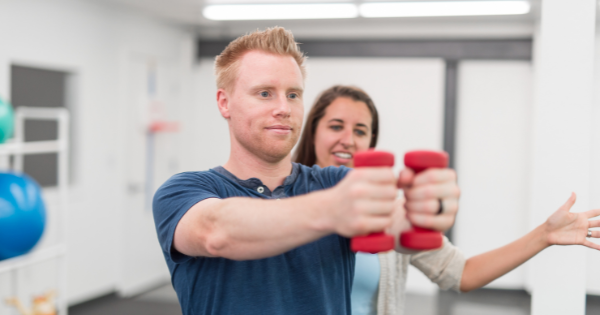Each summer brings the promise of sunshine, celebration, and well-earned vacations. For many Americans, that means time at the beach, backyard barbecues, and fireworks displays. While these seasonal traditions offer relaxation and joy, they also come with preventable hazards that healthcare providers should be ready to address.
As Physician Assistants, we have a unique opportunity to promote public health by educating our patients about summer safety. This article highlights three common summer activities—beaches, grilling, and fireworks—and the associated risks we should help our patients prepare for and avoid. Many of these recommendations seem like basic common sense. But the statistics tell a different story!
1. Beaches and Sun Exposure
Every year, millions of Americans head to beaches—on oceans, lakes, and rivers—for rest and recreation. In 2023 alone, over four hundred million visits were made to U.S. beaches on oceans and lakes. While the physical and mental health benefits of time spent outdoors are well-documented, unprotected sun exposure remains a significant risk.
The CDC reports that more than 33,000 people in the U.S. seek emergency care each year for sunburn-related injuries. Severe burns can cause dehydration, pain, and even secondary infections. Counsel patients to use broad-spectrum sunscreen with an SPF of 30 or higher, applied 15–30
minutes before sun exposure and reapplied every two hours, or more often if swimming or sweating.
Avoid recommending home remedies like butter or oils, which can trap heat and worsen burns. Instead, suggest NSAIDs or acetaminophen for pain and inflammation, and emphasize the importance of hydration.
2. Backyard Grilling Safety
Grilling is a beloved summer pastime—especially among men, who often take pride in mastering the flame. But backyard barbecues come with real risks. According to the National Fire Protection Association (NFPA), an average of 10,600 home fires per year in the U.S. involve grills, with July being the peak month.
Key safety tips to share with patients:
· Never use grills indoors or in enclosed spaces.
· Always open the lid before lighting a gas grill.
· Keep grills at least five feet from any structure.
· Avoid using accelerants like gasoline or alcohol; only charcoal starter fluid should be used—and never added to an already-lit fire.
· Fully extinguish coal before disposal and ensure propane lines are shut off after use.
Improper grilling can result in burns, property damage, and even fatalities. Encourage patients—especially new grill users—to read the manufacturer’s instructions and take basic precautions.
3. Fireworks: Leave It to the Professionals
Fireworks injuries surge around the Fourth of July each year. But I still hear them lullabying me to sleep every night weeks after our nation’s birthday. In 2022, the U.S. Consumer Product Safety Commission (CPSC) reported over 10,200 fireworks-related injuries treated in emergency departments, with nearly 75% occurring in the month surrounding Independence Day. The most injured areas are the hands and fingers (29%), followed by the head, face, and ears (19%).
Key safety advice for patients:
· Leave fireworks to professionals whenever possible.
· Always supervise children—even when using sparklers, which burn at temperatures of up to 2,000°F.
· Never relight “dud” fireworks or attempt to manage misfires.
· Avoid lighting fireworks while under the influence of alcohol or drugs.
· Never point fireworks toward people, animals, buildings, or vehicles.
Even minor misjudgments can cause disfiguring injuries that may permanently impair hand function or vision. Share personal anecdotes when appropriate—many patients take real-life stories more seriously than statistics alone.
Final Thoughts
We cannot prevent every accident, but we can reduce the risk by sharing clear, actionable guidance with our patients. As clinicians, our role extends beyond treating injuries; it also includes empowering our communities with knowledge. I hope my series of articles about the pitfalls of summer hasn’t ruined yours! Summer should be a time of joy, not a tragedy. Let us equip our patients to enjoy it safely.
Stay safe and sun-smart.
Frequently Asked Questions
- What should I advise patients for safe sunburn treatment? Recommend broad-spectrum SPF 30+ sunscreen applied 15–30 minutes before exposure and every 2 hours thereafter. For sunburns, avoid home remedies like butter or oils. Instead, suggest NSAIDs or acetaminophen, cool compresses, and hydration.
- What grilling safety tips should clinicians share with patients? Remind patients to never grill indoors, open gas grill lids before lighting, and keep grills at least five feet from structures. Emphasize avoiding accelerants and reading manufacturer instructions to prevent burns and house fires.
- What’s the best clinical guidance for fireworks safety education? Advise patients—especially families—to attend professional displays. Emphasize that sparklers can cause severe burns, and that alcohol + fireworks is a dangerous mix. Warn against relighting duds and improper disposal practices.
Written For CM&F By: Robert M. Blumm, PA, DFAAPA, PA-C Emeritus
CM&F Clinical Advisor



